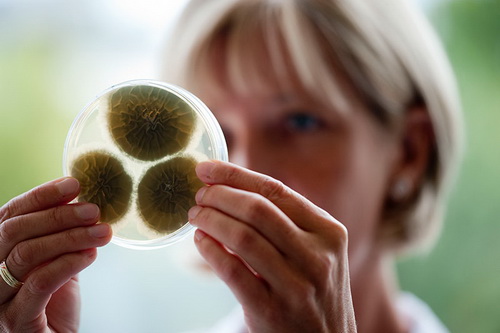



BIOMIN Commits to New Project Aimed at €3B in EU Crop Losses Due to Mycotoxins
EU - Mycotoxins, fungal metabolites that afflict cereals and other crops, cost the European agriculture industry around €3 billion each year and pose harm to human and animal health through the feed and food chain. BIOMIN has joined a scientific research consortium that aims to cut this figure considerably.

”The MyToolBox project has the potential to save tens of millions of euros annually in reduced crop losses and achieve real reductions in dietary exposure to mycotoxins, which is immeasurable in terms of benefits to human health,” according to project coordinator, Professor Rudolf Krska of the University of Natural Resources and Life Sciences (BOKU) in Vienna.
The European Union’s Horizon 2020 Research and Innovation programme has recently awarded funding to the MyToolBox Project, a four-year, five million euro effort to create a cloud-based platform that provides real-time, customized advice about mycotoxins to farmers and other decision makers in the food and feed chains. The multidisciplinary team of scientists, engineers and IT specialists represent 23 governmental, academic and industry organizations from 11 countries.
“The project’s focus on prevention and empowering actors along the food and feed chain make it unique,” commented Dr. Gerd Schatzmayr, Research Director at the BIOMIN Research Center located in Tulln, Austria, adding that “The commitment of BIOMIN to the MyToolBox project is a testament to cutting-edge scientific research in the service of the agricultural industry and society at large. Beyond the extensive R&D activities of BIOMIN, it highlights both the economic and societal benefits, reflecting our deeply-held corporate social responsibility values.”
Biofuels in the mix
The MyToolBox project will not only pursue a field-to-fork approach along the food and feed chain, but will also consider safe use options of mycotoxin contaminated batches such as microbial energy conversion to efficiently produce biofuels.
BIOMIN will conduct lab and pilot scale testing of preventive measures to diminish the occurrence of mycotoxins in the production of biofuels and fermentation by-products such as distiller's dried grains with solubles (DDGS), often used in livestock feed. “The bioethanol industry may see a revenue boost and livestock producers could see animal health and performance improvements due to higher quality DDGS thanks to lower mycotoxin contamination,” noted Dr. Gerd Schatzmayr.
| TheCattleSite News Desk | Read more Biomin News here |


